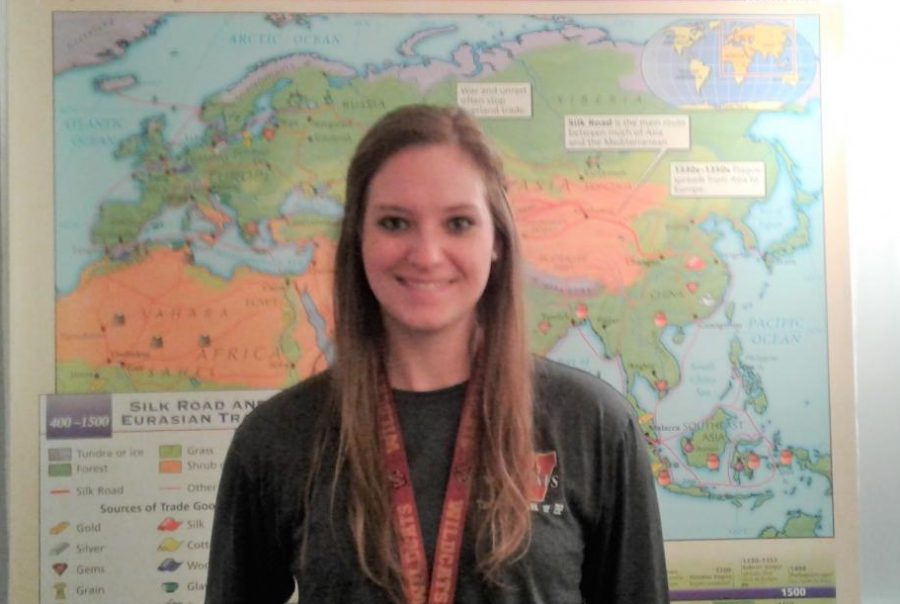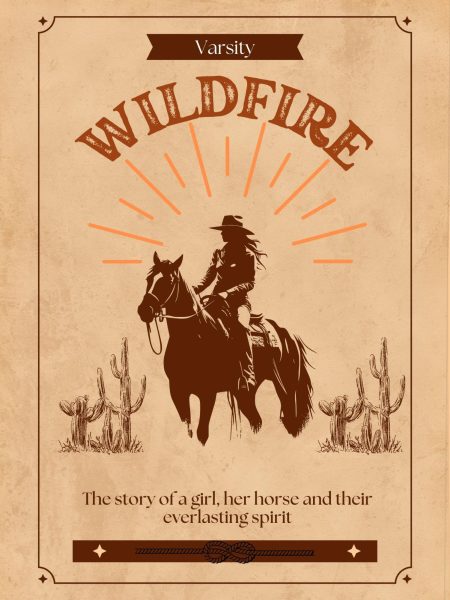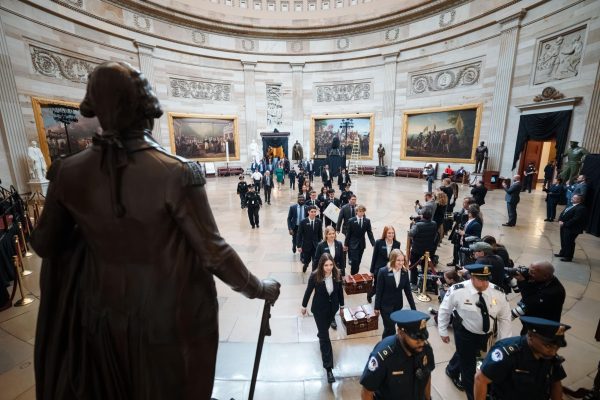Talking International Travels
World history teacher shares her perspectives of international traveling
World history teacher, Amanda Gillihan.
Amanda Gillihan is a world history teacher and an international traveler. She has been to eight different countries, including France, Germany and the United Kingdom in her spare time. After traveling to historical cities, such as London and Berlin, Gillihan has gained an appreciation for certain cities and has learned to see the world differently.
“I really, really love London as a city,” Gillihan said. “I really like English history, so from a historical standpoint, I really like London. For a scenery standpoint, the northern part of France was really pretty. It has lots of cliffs and beaches.”
Gillihan has found ways to utilize her international travels for her teaching. Through stories and pictures of her travels, she is able to enhance her curriculum.
“For example, this past summer I went to Berlin,” Gillihan said, “and I have this picture now, of me with one foot on either side of the former marker of the Berlin wall, with parts of the wall in the standing background.”
Along with experiences, Gillihan has taken away a greater mastery of national histories from her travels.
“It helps you have a better understanding of certain things,” Gillihan said. “When I went to Hungary we had a tour guide that taught us a lot about Hungarian history, and it was really fascinating. In world history AP, I don’t have time to delve into something College Board says doesn’t matter. But if it had been somewhere else, somewhere that I do teach, I definitely would have used some of those facts and that information because that just gives you a better understanding once you’ve been there, and once you’ve seen it.”
One of the things Gillihan has been able to see internationally is several long-term effects of past governments in Europe, and she now more fully understands the extent of government influence.
“It definitely opens your eyes,” Gillihan said. “For example, I went to the Czech Republic; they were under communist rule until the 90’s, so parts of their cities are still poor and kind of recovering from that. It helps you see different perspectives and influences.”
Out of her travels, Gillihan has been able to learn about various cultures, and therefore, apply them to societal cliches.
“I think it helps you eliminate some stereotypes,” Gillihan said. “For example, the first time I went to France, I was in high school, and everyone was like, ‘oh Parisians, they just hate Americans.’ So I was waiting for all these snobby French people to be so rude to us, and I’ve been to France three times now, and I have never had an experience where anyone in France has been rude to me. I think it’s just that if you’re respectful of their culture, and their landmarks and monuments, they’re happy to have you there; and if you’re not, they probably will be rude to you.”
Although Gillihan is aware of the barriers preventing people from traveling internationally, she recommends that everyone take a trip at least once in their life.
“I think it’s a great experience,” Gillihan said. “I think some people are nervous in today’s day and age because of security threats and things like that. And to that, I just say you can’t let those people win. If you let them keep you from traveling, that’s letting them win. I’m not saying go when the time is super high risk. Obviously, pay heed to any warnings that the government is issuing about traveling and things like that. But be smart, you know, keep your wits about you. Travel with people you know, don’t walk with strangers, thing like that. So don’t be afraid to travel abroad, and don’t be afraid of cultural differences.”
Gillihan has experienced various national differences, most notably different languages. On her trip last summer to Hungary and the Czech Republic, she witnessed this culture distinction.
“They have letters in their alphabet that we don’t even have, so there is no background as we were walking around reading street signs,” Gillihan said. “And it’s not even like when you’re in Spain or France, where you can kind of tell at least what some of the words might mean because they’re similar in English. These languages were totally different. So I understand that can be intimidating, but the tradeoff you get from traveling, the experience you get, the things that you learn, the things that you see and how much fun you’ll have, it’s definitely worth it.”
Your donation will support the student journalists of Cypress Woods High School. Your contribution will allow us to purchase equipment and cover our annual website hosting costs.



